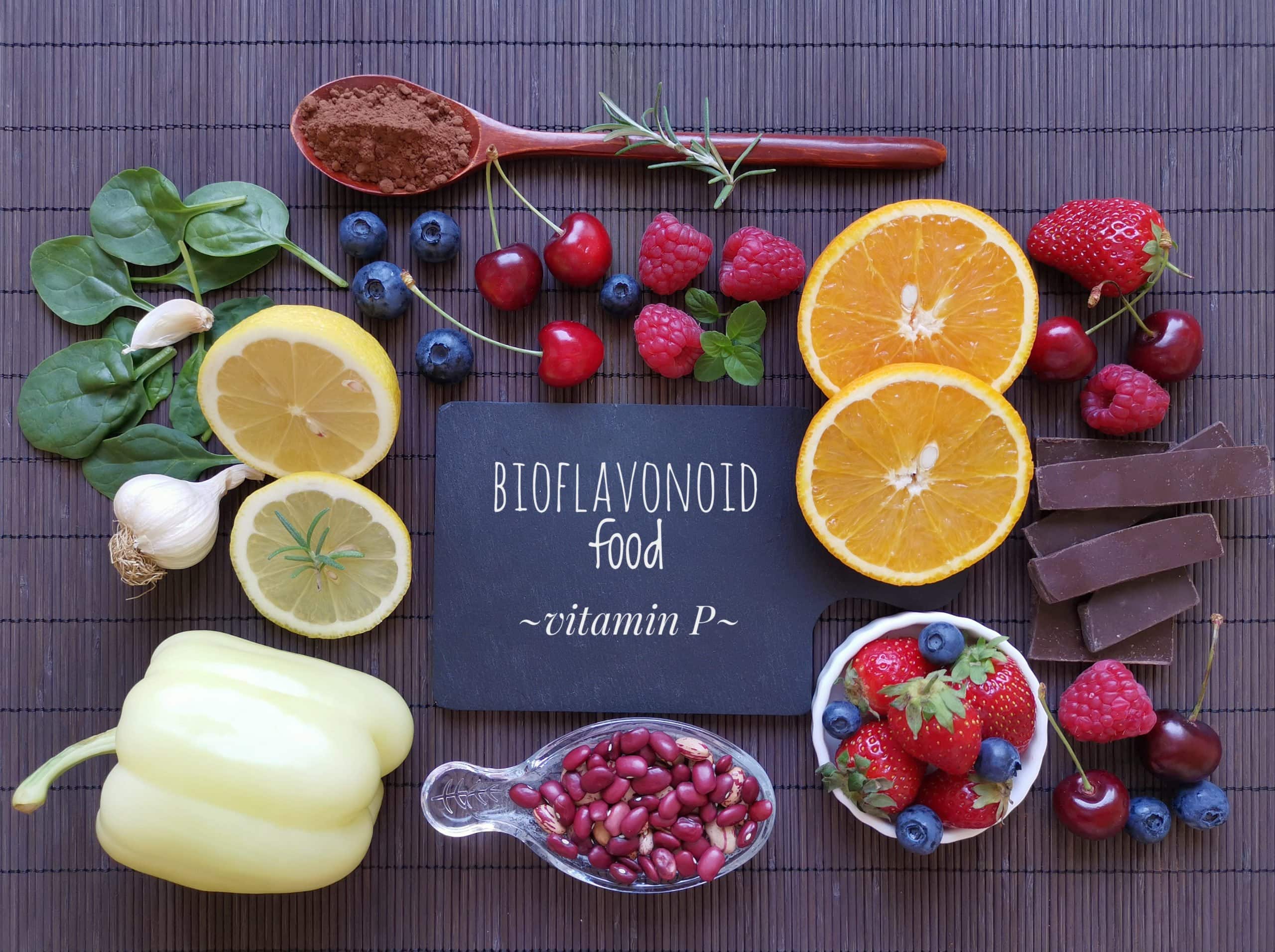Quercetin is known by many health gurus and medical professionals, as a robustly-beneficial compound/natural pigment found in many super-foods including cranberries, blueberries, and black plums which, by the way, have the highest quercetin content, among fruits. Red onions and capers are, also, very high in quercetin. Getting the right amounts of this powerful compound is important since the human body cannot produce quercetin, on its own.
In recent years, research has revealed the efficacy of quercetin with fighting free radicals, reducing inflammation, improving cardiovascular health, easing allergy symptoms, and helping to boost the immune system.
As a plant-based flavonoid, quercetin’s antioxidant and anti-inflammatory properties are noteworthy. The Journal of Medicinal Food (2018) indicates that one of the biggest health benefits of quercetin, even when isolated, is its effectiveness with combating muscle atrophy caused by obesity.
Individuals who are obese, commonly, have greater amounts of TNfa. TNfa is a cytokine – small proteins important in cell signaling – which promotes inflammation and has the ability to cause muscle atrophy in severely-overweight individuals.
According to Medical News Today, quercetin is one of the most common and well-researched flavonoids. The studies behind quercetin’s antioxidant and anti-inflammatory properties reveal how this flavonoid affects the TNfa-related biomarkers for atrophy. Quercetin can prevent TNfa-induced muscle degeneration prevalent in obese individuals.
Quercetin plays a vital role in helping the human body combat free-radical damage which is linked to chronic diseases. Let’s take a peek at the benefits of quercetin, in a bit more detail.
Quercetin’s Benefits and Potentials are Eye-Opening!
Fighting Free Radicals: As mentioned, quercetin has antioxidant properties that work inside the human body, but what does that really mean? Simply put, antioxidants prevent oxidation. This is critical since oxidation can lead to the production of potentially-harmful molecules known as free radicals which increase the risk of disease and quicken aging! The antioxidants in quercetin neutralize free radicals which helps defend human cells from free-radical damage.
The problem lies when antioxidants accumulate. When this takes place, it can increase one’s risk of heart disease, Type 2 diabetes, cancer, and other chronic diseases. The rich-antioxidant levels of quercetin fight antioxidant overloads as well as reduce inflammation, thereby, reducing the risk of a host of serious health conditions.
Interesting side-note: Quercetin is a more powerful antioxidant than vitamin C, vitamin E, or beta carotene!
Reducing Inflammation: Though inflammation is the body’s natural response to stress and injuries and contributes to healing, there is another side of the coin – chronic inflammation can contribute to certain health conditions.
Laboratory studies indicate that quercetin has been effective with preventing acute and chronic inflammation in animals and humans, and it has demonstrated anti-arthritic properties. The benefits of quercetin have been reported by Nutrients – published online in 2016 – as possessing strong anti-inflammatory properties. Healthline, another online health resource, supports this finding.
Guarding Against Cancer: The National Institutes of Health reveals that quercetin shows promise with its anticancer properties which may prevent the spread of cancer cells and tumor growth. A 2015 report from Oncology Reports found that quercetin limited the growth of prostate cancer cells in mice and rats. Another 2018 study indicated that quercetin showed promise in both the treatment and prevention of prostate cancer.
Mount Sinai researchers share their own findings regarding the real and potential benefits of quercetin. They state that quercetin has been shown to inhibit the growth of cancer cells in breast, colon, prostate, ovarian, endometrial, and lung tumors. Additionally, Mount Sinai found that quercetin slows tumor growth in leukemia cells – the research continues.
Preventing Neurological Diseases: As mentioned earlier, antioxidants can accumulate, which leads to what is called ‘oxidative stress’. This condition contributes to Alzheimer’s or Parkinson’s Disease. Quercetin’s antioxidant properties fight free radicals and oxidative stress. For this reason, quercetin may prevent a number of neuro-degenerative diseases.
Relieving Allergy Symptoms: Quercetin limits histamine from being released from cells. Because of this, it is being touted, by many in the medical field, as an effective antihistamine. The power behind quercetin’s anti-allergy properties may help with bronchitis and asthma, and studies continue with this exciting possibility.
Preventing Infections: The anti-bacterial properties of quercetin help with bacteria-related issues with the digestive system, skin, respiration, and the urinary tract. Also, some viruses may have met their match with quercetin – those would include adenovirus, the herpes simplex virus, and others.
Reducing Risk of Heart Disease: The National Institutes of Health states that consuming increased levels of flavonoids, including quercetin, can reduce the risk of heart disease and strokes. Quercetin’s ability to improve blood-vessel cell health as well as promote healthy blood flow in heart-diseased individuals is extremely encouraging.
Lowering High-Blood Pressure: The American Heart and Stroke Association supports quercetin supplements to reduce blood pressure. Their 2016 study and other research findings reveal the effectiveness of quercetin to lower blood pressure.
One research group included overweight volunteers who took daily quercetin supplements for a designated period of time. They demonstrated lower levels of harmful cholesterol and reduced systolic blood pressure, which measures the pressure in blood vessels during a heartbeat.
Quercetin – It Does What?
Since the above list regarding the health benefits of quercetin as a potent antioxidant is not exhaustive, it would be remiss not to mention other clinical studies that indicate the effectiveness of quercetin to reduce stress, boost energy, enhance exercise endurance, and ward off the common cold – the list goes on.
Dr. J. Zimmerman, from the Health First Chiropractic Clinic located in Galloway, New Jersey, lectures to chiropractors all over the world. He states, “Quercetin has strong anti-viral properties. Quercetin, when taken with zinc, has the astounding ability to push the zinc into the center of the cell where the zinc can stop the virus from reproducing. Quercetin with zinc should be part of your anti-viral war chest, and taken daily!”

